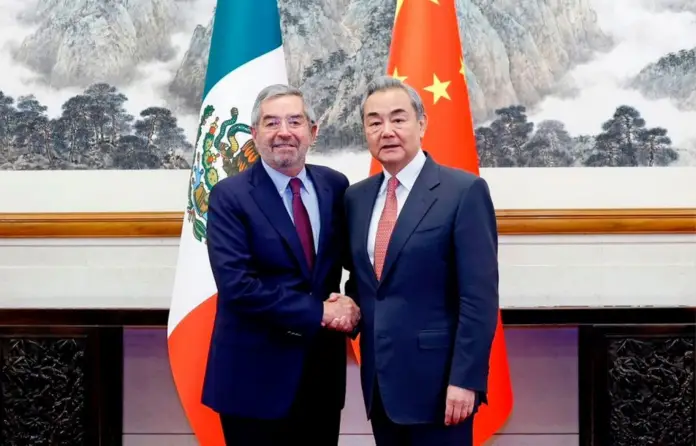President Claudia Sheinbaum revealed that Mexico maintains a strong trade relationship with China despite not having a free trade agreement like the USMCA with the United States. During her morning press conference, she emphasized that bilateral collaboration will focus on science, technology, and tourism, priority areas for both countries. “This exchange is different from what we have with the United States, but equally valuable,” the president stated, while Foreign Minister Juan Ramón de la Fuente participated in the 4th CELAC-China Ministerial Meeting in Beijing, where these commitments were reinforced.
What concrete agreements emerged from the meeting?
De la Fuente and Chinese Foreign Minister Wang Yi reaffirmed the principles of long-term cooperation and coordination, under the framework of the Comprehensive Strategic Partnership in force since 2013. Priority was given to political dialogue in multilateral forums, along with educational and technological projects that benefit both nations. China recognized Mexico’s growing international leadership under Sheinbaum’s administration, paving the way for a closer relationship in the new global context.
Tourism is emerging as a key focus of the new collaboration, with Mexico aiming to attract more Chinese visitors to its cultural and natural destinations. Analysts indicate that this sector could grow 30% in the next three years, thanks to joint promotional strategies. The absence of an FTA has not prevented China from becoming Mexico’s second-largest trading partner, with trade exceeding $110 billion in 2023, according to official data.
This meeting marks a milestone in Mexican diplomacy toward Asia, demonstrating that Mexico is diversifying its alliances without relying exclusively on North America. Sheinbaum anticipated that “important announcements” will follow regarding Chinese investments in clean technology, a sector in which the Asian country is a global leader. While the foreign minister negotiates in Beijing, the Mexican cabinet is preparing a concrete agenda to translate these agreements into tangible benefits for the national economy. The message is clear: China is a strategic ally in Mexico’s new era of international relations.

Source: tabascohoy




